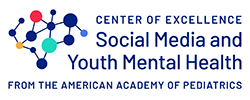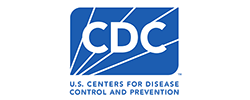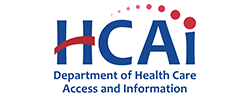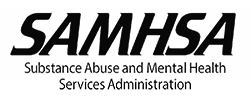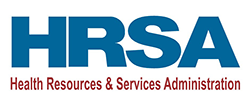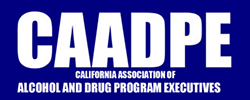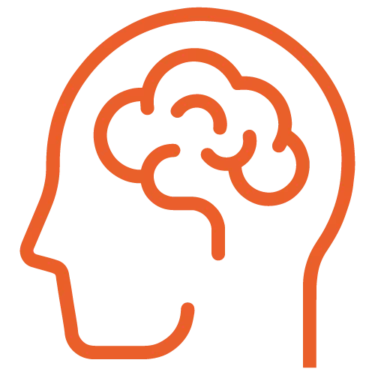National Council’s Youth Work
To ensure National Council’s youth work builds on and aligns with other work being done in the field, we collaborate with:
*This is not a comprehensive list and is subject to change.
In the Press
- Groundbreaking Partnership Aims to Combat Youth Substance Abuse and Overdose Deaths in California (March 2024)
- Keeping Youth Mental Wellbeing in Mind (Part 1) (September 2023)
- New National Council Initiative Reveals That Prevention Messaging Relies on Trust (December 2021)
- Impacting the Trajectory of Substance Use: A Conversation on Youth SBIRT (November 2021)
- Promoting Youth Voice: An Organizational Perspective (October 2021)
Programs and Impact
Substance Abuse and Mental Health Services Administration Center of Excellence for Integrated Health Solutions
- In collaboration with Weitzman Institute, the Center of Excellence for Integrated Health Solutions (CoE-IHS) offers training and technical assistance that connects primary care, behavioral health and school-based health providers to expert faculty from primary care and school-based settings to improve care for youth experiencing trauma. Training equips providers with strategies to assess, treat and support children, adolescents and their families experiencing trauma.
- Partnering with the School-Based Health Alliance, the CoE-IHS develops training and technical assistance to increase knowledge and awareness of state-level and site-level strategies to support school-based health centers in providing mental health services.
- The CoE-IHS also offers training and technical assistance to rural youth-serving health care providers through the Strengthening Care for Rural Youth ECHO. The ECHO strengthens provider knowledge and organizational practices to support rural young people who are at greater risk of mental health and substance use challenges, including suicide ideation and attempts.
Certified Community Behavioral Health Clinics
- Funded by the Substance Abuse and Mental Health Services Administration (SAMHSA), the National Council’s Certified Community Behavioral Health Clinic (CCBHC) National Training and Technical Assistance Center (NTTAC) serves CCBHCs with learning communities and technical expert panels centered around children and families.
- In addition, the National Council’s SAMHSA CCBHC State-Technical Assistance Center (S-TAC) offers training and technical assistance for state CCBHCs. Working with the University of Connecticut’s Innovations Institute, S-TAC is developing a written resource on promising practices and innovations in serving children and youth in CCBHCs.
Health Services and Resources Administration American Academy of Pediatrics Comprehensive Systems Integration for Adolescent and Young Adult Health
- The National Council, in collaboration with the American Academy of Pediatrics (AAP), and as part of a national coordinating committee for the National Center for Adolescent and Young Adult Health and Well-being, develops training and technical assistance to improve comprehensive systems integration for adolescent and young adult health.
Substance Abuse and Mental Health Services Administration American Academy of Pediatrics Social Media and Youth Mental Health
- The National Council and the American Academy of Pediatrics develop training and technical assistance related to social media and youth mental health, including advisory support, webinars, outreach and clinical case scenarios.
California Department of Health Care Access and Information Catalyst Center Substance Use Disorder Prevention for Systems-involved Youth
- The National Council, along with the California Association of Alcohol and Drug Program Executives, is supporting Catalyst Center (a part of the California Alliance of Child and Family Services), in a project funded by the California Department of Health Care Access and Information (HCAI). This project is developing a training curriculum for adults to recognize and effectively respond to youth substance use, particularly for systems-involved youth. The National Council provides advisory support on preliminary research, program management, content considerations, and curriculum development and dissemination.
Tepper Foundation and Youth Mental Health First Aid
- The National Council, in partnership with the Tepper Foundation, will develop and disseminate a sustainability toolkit to guide schools and youth-serving organizations through the initial stages of building awareness around Youth Mental Health First Aid (MHFA) and teen MHFA training programs, offer tools for planning and collaborative strategy building, and provide a framework for implementing and sustaining long-term Youth MHFA and teen MHFA training programs.
Youth Mental Health Corps
- The Youth Mental Health Corps is a partnership in collaboration with the Schultz Family Foundation, Pinterest and America Forward. It’s addressing the youth mental health crisis and the mental health workforce shortage by creating service-to-career pathways into the behavioral health field.
Getting Candid
- The National Council, in collaboration with the Centers for Disease Control and Prevention, community behavioral health organizations, state and local partners, and youth-serving organizations, developed and disseminated Getting Candid — a youth substance use prevention toolkit — and capacity-building resources to deploy following COVID-19 and in future disasters, shelter-in-place orders or infrastructure disruptions.
New Jersey teen Mental Health First Aid
- Dozens of schools and youth-serving organizations throughout New Jersey provided free teen Mental Health First Aid (tMHFA) training to the youth they serve through a grant from the New Jersey Pandemic Relief Fund. This mental health education program equipped young people in New Jersey with skills to identify, understand and respond to signs of mental health and substance use challenges and crises experienced by their friends and peers.
Youth Mental Health First Aid and teen Mental Health First Aid
- Youth Mental Health First Aid teaches parents/caregivers, family members, teachers, school staff and other caring adults who regularly interact with young people how to help an adolescent (age 12-18) who may be experiencing a mental health or substance use challenge or is in crisis. The course introduces common mental health challenges for youth, reviews typical adolescent development, and teaches the 5-step Mental Health First Aid Action Plan (ALGEE) for helping young people in crisis and noncrisis situations. Topics covered include anxiety, depression, substance use, disorders in which psychosis may occur, disruptive behavior disorders (including AD/HD), and eating disorders. To learn more, download the Youth Mental Health First Aid one-pager.
- teen Mental Health First Aid teaches youth in grades 9-12 (ages 14-18) how to recognize and respond to mental health challenges in their friends and when to seek support from a trusted adult. Adolescence is a time of critical change and development, and the time when mental health challenges may first emerge. Those challenges may be the cause for falling grades, problems with close relationships and substance use. To learn more, download the teen MHFA one-pager.

